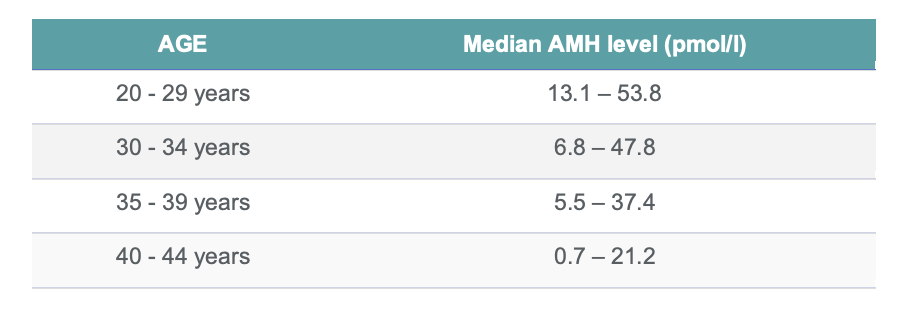What is Anti-müllerian hormone (AMH)?
AMH or Anti-Müllerian Hormone, is a natural hormone produced in women’s ovaries, by the follicles (the structures that contain the eggs).
AMH test is used to assess a woman’s ovarian reserve (“OR”), how many viable eggs a woman has left in her ovaries. AMH test can be done at any time during the menstrual cycle. The reference value (“normal” level) varies from lab to lab so can be difficult to compare results from one lab to another.
AMH or Anti-Müllerian Hormone, is a natural hormone produced in women’s ovaries, by the follicles (the structures that contain the eggs).
AMH test is used to assess a woman’s ovarian reserve (“OR”), how many viable eggs a woman has left in her ovaries. AMH test can be done at any time during the menstrual cycle. The reference value (“normal” level) varies from lab to lab so can be difficult to compare results from one lab to another.
AMH declines with age. However, a high AMH could suggest Polycystic Ovarian Syndrome (PCOS) in some patients.
The below table is a reference value for “Elecsys AMH” , an AMH test developed by diagnostic company Roche. You can use this if your lab uses the same test.
Elecsys AMH for the assessment of ovarian reserve for women aged between 18 – 44 years old
Table: AMH reference values


Connect with us